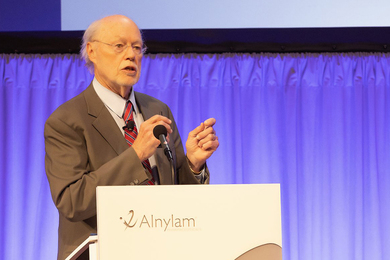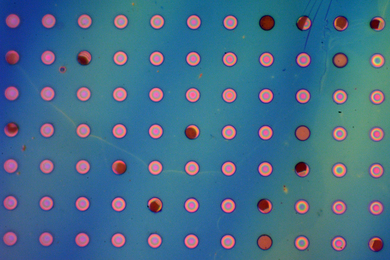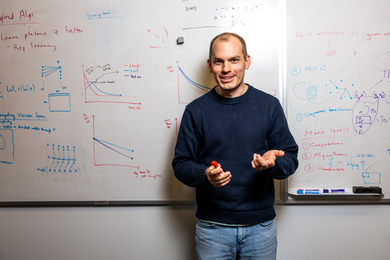An MIT professor has joined nine other scientists in calling for government action to avert future disasters related to hurricanes.
The group challenged government and industry leaders to act to stop "our lemming-like march to the sea."
"We call upon leaders of government and industry to undertake a comprehensive evaluation of building practices, and insurance, land use and disaster relief policies that currently serve to promote an ever-increasing vulnerability to hurricanes," the scientists wrote.
In a joint statement, Kerry Emanuel, MIT professor of meteorology in the Department of Earth, Atmospheric and Planetary Sciences, joined other climate experts in asserting that the main hurricane problem facing the United States is "the ever-growing concentration of population and wealth in vulnerable coastal regions."
According to the scientists, "Rapidly escalating hurricane damage in recent decades owes much to government policies that serve to subsidize risk.
"State regulation of insurance is captive to political pressures that hold down premiums in risky coastal areas at the expense of higher premiums in less risky places," the statement says. "Federal flood insurance programs likewise undercharge property owners in vulnerable areas. Federal disaster policies, while providing obvious humanitarian benefits, also serve to promote risky behavior in the long run."
The statement was signed by Emanuel; Richard Anthes, president of the University Corporation for Atmospheric Research; Judith Curry of the Georgia Institute of Technology; James Elsner of Florida State University; Greg Holland of the National Center for Atmospheric Research; Phil Klotzbach of Colorado State University; Tom Knutson of the National Oceanic and Atmospheric Administration; Chris Landsea of the National Hurricane Center; Max Mayfield, director of the National Hurricane Center; and Peter Webster of the Georgia Institute of Technology.





